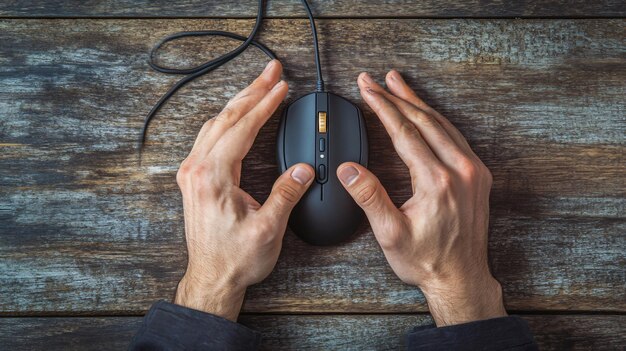The Psychology of Skins: How Your Skin Choice Affects Your Opponent’s Mindset

The psychology of skins in online games involves understanding how a player’s choice of cosmetic items can influence an opponent’s mindset through perceived skill, intimidation, and psychological manipulation, ultimately affecting their gameplay and decision-making.
Ever wondered if the skin you choose in a game could actually affect your opponent’s gameplay? It’s more than just aesthetics; the psychology of skins: how your skin choice affects your opponent’s mindset plays a significant role in online gaming, influencing perceptions and potentially tilting the playing field.
The Subtle Art of Virtual Intimidation
In the competitive world of online gaming, first impressions matter. The skin a player chooses speaks volumes before a single shot is fired or a spell is cast. It’s a form of non-verbal communication that can subtly influence an opponent’s perception and, ultimately, their gameplay.
Perceived Skill and Confidence
A rare or expensive skin can often be interpreted as a sign of experience and skill. Opponents might subconsciously assume that a player sporting a sought-after cosmetic is a formidable adversary. This perception can lead to hesitation or a more cautious approach, giving the player with the skin a slight psychological advantage.
The Halo Effect
The “halo effect” comes into play when a single positive attribute influences the overall impression of a person. In this case, an impressive skin can create a halo effect, leading opponents to believe the player is more skilled, experienced, and potentially more dangerous than they actually are. It’s a cognitive bias that can work wonders for a player’s confidence and their opponent’s anxiety.

Conversely, a player using a default or basic skin may be underestimated. Opponents might perceive them as less experienced or skilled, leading to complacency and potentially reckless gameplay. This can create opportunities for the “underdog” to surprise their opponents and gain an unexpected advantage.
Skins act as visual cues that shape initial impressions. Whether it’s intimidation or underestimation, the psychology of skins influences the battlefield even before the game truly begins. This psychological chess can be just as important as mechanical skill.
The Economics of Fear: Rare Skins and Their Impact
The rarity and cost associated with certain skins amplify their psychological impact. Knowing that a skin is difficult to obtain or represents a significant investment can further influence an opponent’s mindset, adding an extra layer of pressure and intimidation.
Status and Investment
Skins perceived as status symbols can profoundly affect your opponent. Here we delve into how rare skins create a sense of respect or awe.
The Commitment Factor
The money associated with certain skins influences players’ gameplay psychology. It tells a story of prestige, commitment, and investment from one player to another.
- Demonstration of Dedication: Players tend to perceive expensive skins as a sign of dedication.
- The Value Mindset: Investment in games creates psychological pressure on the opponent to play more carefully.
- Risk Perception: Rare skins are perceived as a trophy, often leading to tactical retreats or defensive play.
The economics drive the psychological impact of skin choices. Thus, players wearing these skins enter the game with a psychological advantage that may result in better strategic plays. Recognizing the connection between economic value and psychological strategies can enhance your gaming experience.

The Art of Deception: Skins as Psychological Warfare
Beyond intimidation, skins can be used as tools for deception, misdirection, and psychological warfare. A well-chosen skin can create a false sense of security, bait opponents into traps, or simply distract them at crucial moments.
Camouflage and Misdirection
Strategic skin choices allow players to merge gameplay with their skin by taking on characteristics that blend with the environment or mislead your opponent.
Baiting and Trapping
The skin can invite aggression from your opponent, giving you the upper hand in the game. Learn how a character can be used as bait using their skin selection:
- Perception Manipulation: Attractive skins create distractions that allow players to take advantage.
- Enticement Tactics: Expensive skins provoke a desire to eliminate the player which makes competitors easier to trap.
- Mind Game Strategy: Unexpected skins allow for unconventional plays for confusion that leads to a competitive advantage.
Blending deception and skins generates psychological warfare. Therefore, the art of using skins to manipulate opponents’ minds can lead to surprising victories. It’s about the mind-game strategy where you use skins to affect opponent’s choices.
Cultural Significance and Skin Preferences
Cultural preferences significantly influence the choice of skins and their psychological impact. Different cultures and gaming communities may have varying perceptions of what constitutes a “cool” or “intimidating” skin, shaping the metagame and the overall aesthetic landscape.
Regional Variations
Certain categories of skins are more appreciated in different regions due to cultural differences. Gamers need to be aware of these regional preferences when picking an online gaming persona.
Community-Driven Trends
Trends also shape skin preferences, and it’s essential to keep up with these evolutions to relate more effectively, especially in team-based games. Understanding cultural norms will help build bridges that enhance community and teamwork within the game.
The intersection of cultural norms and individual preferences transforms gaming into an even more intricate social activity. These insights impact team dynamics and the personal branding strategies employed within gaming communities. That’s why understanding the cultural nuances of skin preferences is vital to improving game play.
The Ethics of Psychological Gaming
As the psychological aspects of gaming become more apparent, it’s crucial to consider the ethical implications of using skins to manipulate and influence opponents. Is it fair to leverage psychological tactics to gain an advantage, or does it cross a line into unsportsmanlike conduct?
Fair Play vs. Manipulation
Here, we examine that the debate around fairness in psychological games is ongoing in the community. Understanding the ethical line allows players to leverage psychological tactics in games effectively without upsetting the balance or enjoyment of gaming for others.
The Impact on New Players
When psychological tactics are more prominent, they impact new online gaming arrivals. We consider the ethical strategies to use for beginners joining in on the game.
- Skill-Based Matching: Fair play requires a matching skill level during the game, instead of intimidation.
- Level-Based Gear: Ethical gameplay means having reasonable parameters for gear and cosmetics.
- Transparency in Skins: Ensuring that the marketing and use of skins are transparent so new players aren’t alienated.
Balancing strategy and ethics creates the foundation for wholesome and exciting gaming participation. Encouraging ethical strategies will result in more immersive and entertaining gaming adventures for everyone. By emphasizing ethical considerations, online gaming environments evolve into places where strategy and creativity flourish, adding value for all involved.
Future Trends: The Evolution of Skin Psychology
The psychology of skins is constantly evolving, driven by technological advancements, changing cultural trends, and the ever-increasing sophistication of the gaming community. As games become more immersive and personalized, the psychological impact of skins is only likely to grow.
AI-Driven Personalization
The gaming industry is using AI to create more personalized skin experiences based on user’s gaming pattern. AI-driven skins react in real-time which amplifies the psychological effect. This changes the dynamics as personalized elements contribute to gameplay.
Virtual Reality and Immersion
As VR technology improves, that enhances skin psychology due to more realistic interactions. VR-enhanced skins enhance the gaming experience creating sensory-rich virtual environments which adds layers of psychological strategies.
The future of skin psychology aims towards greater immersive strategy that enhances the thrills of gaming. By staying ahead of these transformations the experience of game play can be elevated for both those who develop the games and those who play the game.
| Key Area | Brief Description |
|---|---|
| 🤔 First Impressions | Skins shape perceptions, skill assumptions, and initial gameplay strategies. |
| 💰 Economics of Fear | Rarity and high-cost skins amplify psychological pressure. |
| 🎭 Art of Deception | Skins are used for misdirection and tactical advantage. |
| 🌎 Cultural Significance | Cultural norms shape skin preferences impacting team dynamics and branding. |
▼
Skin psychology in gaming is the study of how a player’s choice of cosmetic items affects the mindset and behavior of their opponents. It examines how visual cues from skins influence perceptions of skill, status, and threat level, impacting decision-making during gameplay.
▼
Rare skins can create a sense of intimidation and respect. They often imply that the player is experienced and dedicated, which can lead opponents to play more cautiously or hesitate in critical moments, giving the skin-wearer a psychological advantage.
▼
Yes, skins can be used as a tool for deception and misdirection. By choosing skins that blend with the environment or create a false sense of security, players can bait opponents into traps or distract them at crucial moments, gaining a tactical edge.
▼
Cultural differences significantly influence skin preferences. What is considered stylish or intimidating varies by region, affecting the perceived value and desirability of certain skins. Understanding these nuances is crucial for effective psychological gaming.
▼
The ethics of using skins for psychological warfare revolve around the balance between fair play and manipulation. While leveraging skins for a tactical advantage is common, it’s important to avoid strategies that may unfairly diminish the enjoyment or competitive integrity of the game for other players.
Conclusion
In conclusion, the psychology of skins extends far beyond mere aesthetics. The strategic use of cosmetic items in online games can profoundly influence your gameplay by affecting an opponent’s mindset, perceptions, and decision-making. Whether it’s through intimidation, deception, or cultural expression, mastering the psychological impact of skins can be a key component of success in the virtual arena.





